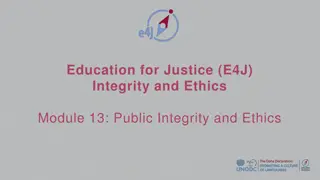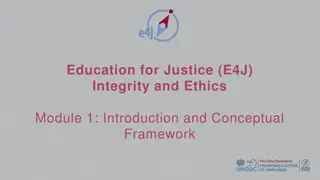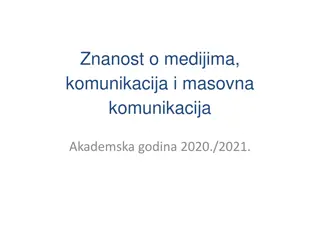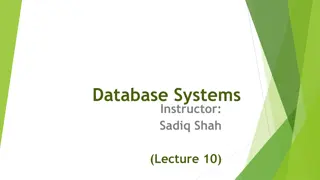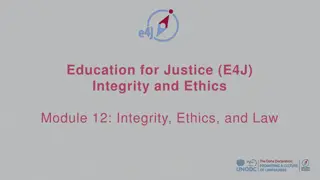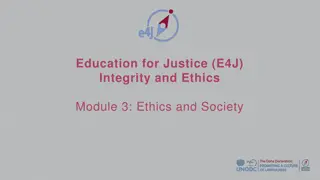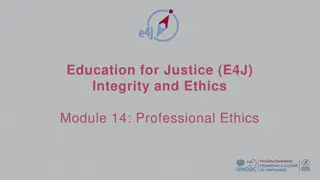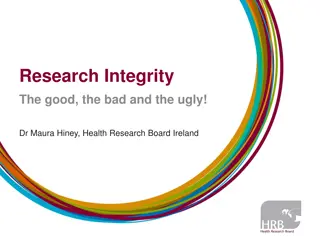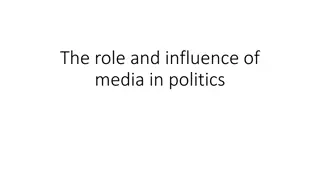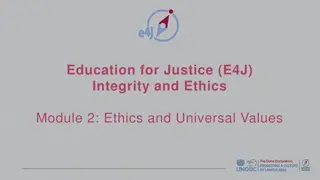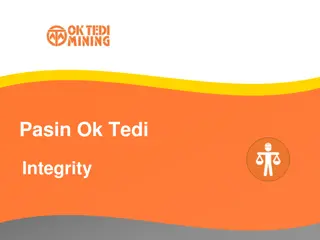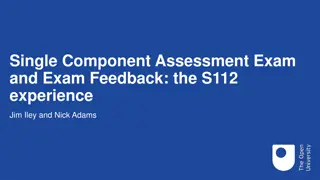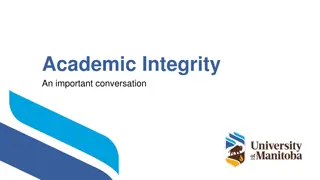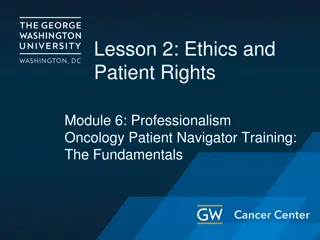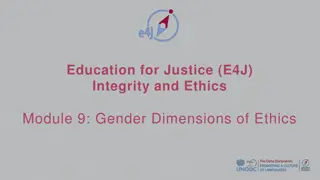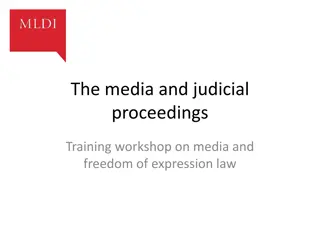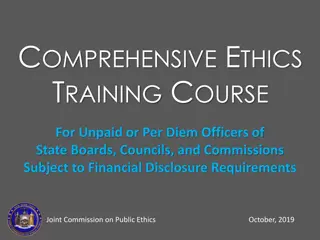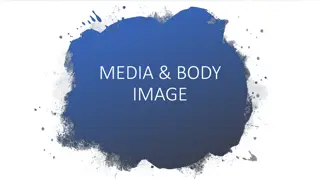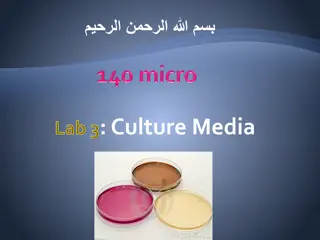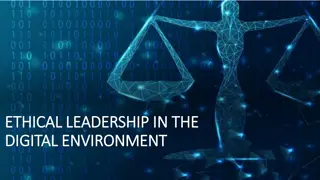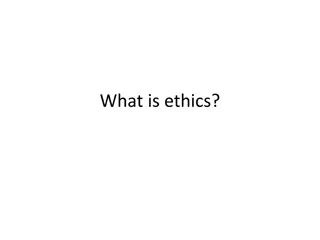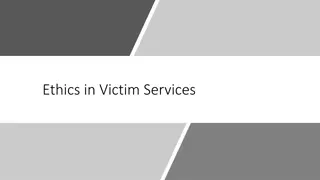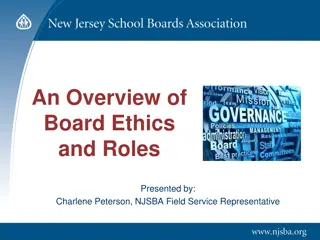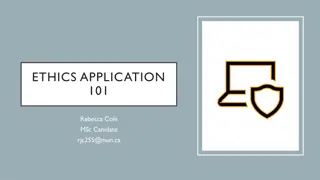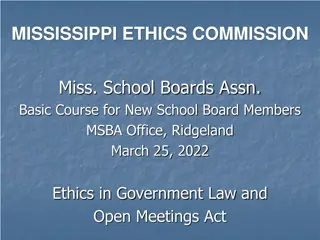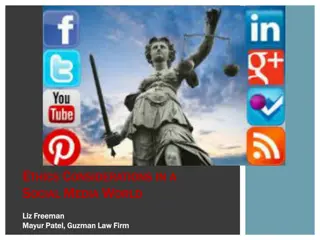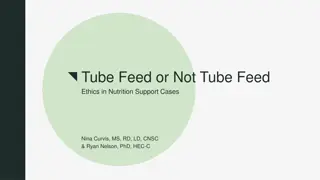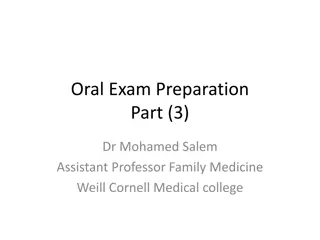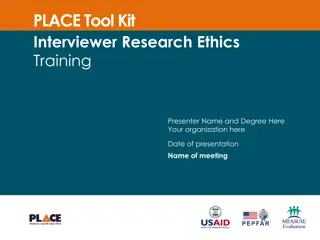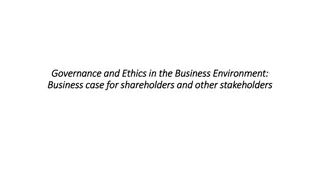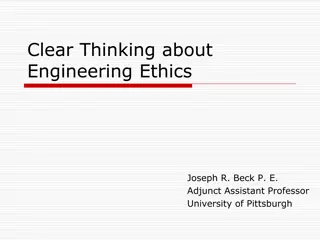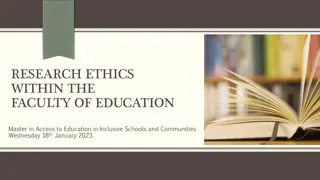Ethics and Integrity in Media: A Comprehensive Module for Students
This module on Media Integrity & Ethics covers various aspects such as choosing reliable news, identifying fake news, analyzing media's duty of care, utilizing the Potter Box method, understanding manipulation of media messages, and promoting citizen journalism. Students will learn about ethical responsibilities in media creation, consumption, and decision-making using the Potter Box model.
Download Presentation

Please find below an Image/Link to download the presentation.
The content on the website is provided AS IS for your information and personal use only. It may not be sold, licensed, or shared on other websites without obtaining consent from the author. Download presentation by click this link. If you encounter any issues during the download, it is possible that the publisher has removed the file from their server.
E N D
Presentation Transcript
Education for Justice (E4J) Integrity and Ethics Module 10: Media Integrity & Ethics
Agenda Class overview (10 minutes) Exercise 1: How to choose your news (20 mins) Exercise 2: The rise of fake news (30 mins) Exercise 3: Does the media have a "duty of care"? (30 mins) Exercise 4: The Potter Box method (30 mins) Exercise 5: Astroturf and manipulation of media messages (30 mins) Exercise 6: Citizen journalism and conclusion (30 mins)
Learning Outcomes Upon completion of this module students should be able to: Appreciate the responsibilities of media and the ethical dimensions of media creation, provision and consumption Understand the ethical obligations that media providers have towards society Make ethical decisions regarding media, whether as providers or consumers, professionals or non-professionals, or as mere users of social media Analyse media ethics cases and issues using the Potter Box decision- making model
The role of ethics in media provision and consumption Who controls the narrative of the media in important issues? If media providers do not ethically investigate their sources and report with honesty, who will know if a media report is true? How can we test its truth?
Ethical principles for journalists and other media providers Seek truth and report it Minimize harm Act independently Be accountable and transparent Objectivity
Ethical principles for citizen journalists and consumers of media Before sharing material online Is what I am posting accurate? Have my sources of information been verified? Will anyone be harmed by sharing this information? Assessing the credibility of an article: Who is the source? The author? Is the writer asserting fact or opinion? Does the piece contain sources or quotes that can be verified? Does the piece use language intended to provoke emotional reactions?
How to choose your news Exercise 1
The rise of fake news Exercise 2
The rise of fake news Think Like A Journalist | Kelsey Samuels | TEDxPlano
Does the media have a "duty of care"? Exercise 3
The Potter Box and media ethics case studies Exercise 4 The Potter Box approach: To precisely define the situation or dilemma To think about the underlying values of each case the principles which are most important to apply To think about the conflicting loyalties that one might hold to the various stakeholders in the case
Astroturf and manipulation of media messages Exercise 5
Citizen Journalism and Conclusion Exercise 6
Core reading I Hargraves, Ian (2014). Journalism: A Very Short Introduction. Oxford: Oxford University Press. See Chapter 7, Murder is my meat: the ethics of journalism (pp. 109-125). Harwood, Kenneth (2017). Visiting the house of rumor. Media Ethics, vol. 28, No. 2 (Spring). Russell, Frank (2016). Beyond rock bottom: will the news media learn any lessons from coverage of the 2016 election? Media Ethics, vol 28, No.1 (Fall). Society of Professional Journalists (2018). http://www.spj.org/ethicscode.asp
Core reading II Swain, Kristen Alley (1994). Beyond the Potter Box: a decision model based on moral development theory. United Nations Office on Drugs and Crime (2013). Reporting on Corruption: A Resource Tool for Governments and Journalists . New York, See Chapter V, Integrity and Accountability (pp. 73-83). Veeneman, Alex (2018). The power of words . 16 January. https://blogs.spjnetwork.org/ethics/2018/01/


